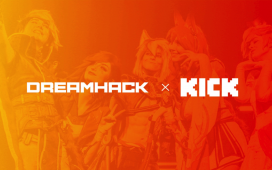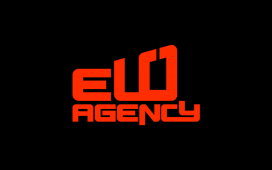Mentioned in this article
WWE superstar Xavier Woods (real name Austin Watson, or “Austin Creed” in gaming circles) is in the unique position of bridging two worlds as a professional wrestler and the host of the popular YouTube video game channel UpUpDownDown (UUDD), which launched in 2015 and has over 2M subscribers, as of this writing. And while he has found success in both worlds, Woods told The Esports Observer that none of this would have happened if he didn’t have some help in overcoming social anxiety as a child.
The truth is that the personas known as Xavier Woods, the trombone-playing member of The New Day; and Austin Creed, the host of UUDD; might not exist if it wasn’t for his mother’s willingness to support his love of gaming. When he was young, Woods’ mother noticed that he seemed to come to life when playing games with other children, so she decided to set up a series of playdates for her son.
“I was very socially awkward as a kid – still am as a man – and so my mom said that the first time she ever saw me really gravitate towards speaking to other kids and not being terrified was when we were playing video games together,” he told The Esports Observer.
Video games were the perfect antidote to his shyness; he made lots of friends, and that in turn helped build the confidence needed to do other things in school, such as playing in Band and competing in sports.
“If I hadn’t been confident enough to talk to other kids and make friends, then I never would have been able to jump into anything else like sports, because I wrestled, I was in band, I played football, track, and all of those things kind of branch from me having the confidence to talk to people and be comfortable in other spaces,” he said. “I wouldn’t have that if I didn’t have these experiences with video games as a kid.”

This confidence also fueled two dreams Woods had growing up: becoming a wrestler and a future host of Nick Arcade on Nickelodeon.
At the age of 17, while still in high school, Woods began fulfilling one of those dreams. It was during these early days of wrestling part-time and earning several degrees in college that he developed the “Austin Creed” persona (an homage to Apollo Creed in the Rocky films), which he would later use as his alter-ego on UUDD.
Woods has worked for numerous wrestling promotions over the years (including several in the Georgia-South Carolina area, Total Nonstop Action, and New Japan Pro Wrestling), but he got his big break in 2010 when he signed a developmental contract with WWE to work for Florida Championship Wrestling (later rebranded as NXT). In November 2013 he was introduced to WWE’s main roster, and one year later he formed The New Day, a tag team that would go on to win the WWE SmackDown Tag Team Championship five times and the RAW Tag Team Championship two times, with Kofi Kingston and Big E (real names Kofi Nahaje Sarkodie-Mensa and Ettore Ewen, respectively).
But his journey to become a YouTube gaming personality and a content creator, something he says he wasn’t initially looking for, didn’t begin until 2014 when he pitched a show idea to WWE executives.

Origin Story
In 2014 Woods was not interested in being part of a WWE-branded YouTube channel about WWE superstars playing video games; all he really wanted to do was host a WWE Network show.
“So I actually didn’t want to create a YouTube channel,” he said. “I had zero intentions of doing that – it wasn’t even like a thought on the radar. I wanted to create a show that was like a Travel Channel-type show [where] you go to different cities and try different things…because as we were traveling for WWE what I would do most nights is find an arcade bar in whatever town we were in, go check it out, play the games, you know, play with people.”
WWE’s answer was an emphatic “no.” At around the same time, the company was toying with the idea of creating YouTube content featuring some of its talent. When Woods crossed paths with “someone from the office,” they began brainstorming about creating a show featuring superstars playing video games, with Woods as the host.
It took another year of negotiations to make UUDD a reality. According to Woods, he was adamant that talent should “be themselves” on the show, a taboo idea even in 2014.
“Wrestling obviously didn’t used to be as open as it is now,” Woods noted, remembering the year-long negotiation with WWE executives. “It’s one of those industries that people have a lot of questions about and we never really want to ruin the magic, we want people to still have their child-like awe when they see the show.

“And from my end I really wanted to make sure that everyone was able to be their genuine selves in this space so we don’t have to worry about good and bad guys, and what happened last week on RAW, SmackDown, and NXT. Someplace where we can all enjoy video games and talk about our experiences with them and just have fun.”
Eventually WWE agreed, and five years after launch, UUDD has found a good measure of success; as of this writing the show has 2.09M subscribers on YouTube, 175K on Twitter, 167K on its Facebook page, and 699K on Instagram. The show has also raised Woods’ profile in the gaming community: he has been a frequent guest on GiantBomb and Kinda Funny Games, and regularly attends gaming events such as PAX, ComicCon, E3, and SXSW Gaming. He is also a frequent attendee of fighting game tournaments such as Evo and CEO.
Ultimately the show’s popularity helped Woods come to the conclusion that he has a future in gaming long after he is finished with wrestling.
When the show got the greenlight in 2015, it started out with only three people handling production: Woods, an editor, and a producer. That number has grown to around seven, according to Woods, with those WWE employees pulling double duty on the YouTube show and weekly programming. Woods says that many of the people working on the show were recruited from other parts of the company because they understood what he was trying to do.
“I feel like we’re able to snipe people that are the right people to have on something like this,” he said. “And so editors and producers, and people who are just smart, funny, and understand what we’re trying to do, because I’m not trying to make it any sort of thing that you would normally see with WWE stuff.”

WWE appears to be behind what Woods is doing. In addition to allowing Woods to use employees to support the show, WWE secures partnerships and sponsorships, connects him with companies for collaborations, and generally allows him to have nearly autonomous creative control.
“I have a lot of weird, dumb, and crazy ideas, so essentially WWE is investing in the idea that I am smart enough to not do anything dumb,” Woods said.
Woods went on to point out that this “global corporation” trusts him with its reputation and branding enough to allow him to livestream at any time, and that he takes this responsibility seriously.
In fact, he has a suitcase dedicated to equipment he might need to record the show at a moment’s notice including a DSLR, a 20 lbs. laptop, portable lighting, microphones, and assorted gaming equipment.
Building a Template
The early days of UUDD saw Woods learn the ropes as a content creator. In wrestling, you learn everything that is important to execute your craft (safety, ring psychology, media training, etc.). It was with this mentality that he approached making UUDD; he learned how to record video and audio, capture gameplay; and generally keep the show entertaining. He also invested significant time into learning everything to avoid being labeled “just a guy being handed a YouTube show.”

“I never wanted it to be something where someone could say ‘oh all of this stuff was handed to you,’” Woods said. “I worked from the ground up on this channel…I understand how every little bit of it works. And that’s no shade to people on YouTube or in the gaming space who have a team that does everything for them, but for me, it was important to actually know how to set up all my stuff for a live stream.”
Woods feels that he is creating a template on how to become a content creator for other wrestlers who need to have a plan for “after wrestling ends.” And while he’s happy for those aging wrestlers who are out there still practicing their craft at an advanced age, he doesn’t want to be a 65-year-old shaking his “hips doing New Day stuff” and taking “Hell in a Cell bumps” to pay his bills because he didn’t have a plan in place to support himself after his wrestling career is over.
“It’s a funny image, but I just want to try and take care of my body a little more,” he said.
Through UUDD, Woods is trying to parlay the appetite to watch people play games into awareness for his own personal brand with the wider gaming community. He has done this by attending the biggest gaming events throughout the year, playing the latest games, and rubbing elbows with the biggest names in industry. Whether he succeeds or not is still a question mark, but he’s on the path.
Be sure to check out part two of our interview with Xavier Woods soon.














